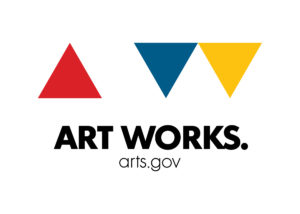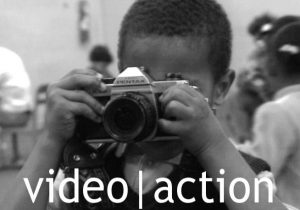By: Sandra Brennan
This is what I learned at ScriptDC: If you have a story to tell, it all starts with the words. If you want to pitch for project funds, you better be concise, confident and have a darn good reel. Thinking of directing? Then you need to convey to your actors how to craft a character’s motivation by asking the right question — even if the character is a lobster. I learned good stories have strong characters (Duck Dynasty, anyone?), and these characters drive everything from script development to financing, from performance to professional satisfaction. I learned how one director, Joan Darling, is able to inspire a new generation of directors to follow their dreams by embracing screenplays and the talent of actors.
In a small director’s workshop too good to be true, Darling and acting coach, Judy Kerr, set in motion a series of scenarios for future filmmakers. Three groups of three took the same two page screenplay and set about determining who would direct and who would perform. Each director took a different approach to the text, but with Darling’s questions of “How do you feel when you dread meeting someone… how would you respond if there was no eye contact?” two pages of bland script was transformed, abracadabra style. Like magic, a group would perform, and the results ranged from OK to really, really good. After a few Darling questions, performances vastly improved; same lines but with a different tone and slightly different direction.
Directors need to be honest, said Darling and Kerr, and encourage actors to go for the “truth.” Every good actor knows how to personalize material and find life experiences from a text. The director’s job is to determine how things happen and under what circumstance. “Be willing to let things happen to you that will happen to your actors,” Darling said. She compared directors to baseball shortstops, moving, anticipating and ready for any ball. The biggest tip for a director might have been this: “Get rid of the monitors,” said Darling, ” your soul needs to be on set.”
This year ScriptDC provided several avenues to explore. Dara Marks’ lecture on the transformational arc of storytelling was a must, so too, Adele Schmidt’s view of documentary film production. But what should I pick? I didn’t have time for “Writing for Comedy,” but as I sat in “What Producers Look For” I couldn’t help notice that there was a lot of laughter seeping in from the neighboring classroom hosted by Kendra Cunningham and Sowande Tichawonna.
If you want to know what producers look for, by the way, it’s the bottom line. No secret there, I suppose, but Joel Westbrook of Interface Media Group (IMG) provided both encouragement and horse sense. “If you have an idea, you need passion but it needs to be passion someone wants,” he said. You can’t sell something if there isn’t a need. Producers Golan Ramras, Karim Chrobog and MaryAnne Culpepper began their careers as writers and stressed the need for stories built around strong characters. This approach wins in fiction and non-fiction programming as long as a story arc can be developed around a key character. And even if a program is soft-scripted, they said, it can take 100 hours of raw video to develop an engaging one hour episode. Apparently, Border Wars had a ratio of 100 hours of raw video to 1 hour of program, and then it grew to 300:1.
Laurie Scheer, like all the moderators at ScriptDC, kept the discussion on task. Scheer, an accomplished producer and faculty member at University of Wisconsin at Madison, along with other panelists, let it be known that storytellers pitch best when they come prepared, can describe the project in two or three sentences, and have access to a super demo reel or social media platform. Joel Westbrook mentioned that you shouldn’t be afraid of a good “no” and say “we” a lot.
ScriptDC began with a joyous opening of old TV and young hearts. The crowd roared at Seinfeld, and Mary Hartman, Mary Hartman as well as Joan Darling’s Emmy nominated Mary Tyler Moore Show episode of “Chuckles Bites the Dust.” As the weekend progressed, participants of Script DC could attend forums on writing for comedy, documentary filmmaking, funding and the art of the sizzle/demo reel. Accomplished producers and film executives held master classes on how to evaluate the “art of the pitch.” Filmmakers also devoted an entire day devoted to face-to-face critiques of original screenplays. For a future screenwriter, it was an opportunity to see actors perform a few scenes of their work and then have it evaluated by experts. If this year’s theme was “It all starts with the words” then perhaps the outcome was putting words into action. ScriptDC is a caliber event. And my final lesson learned? Once again, WIFV supports all filmmakers by providing a forum for personal and professional growth.

















